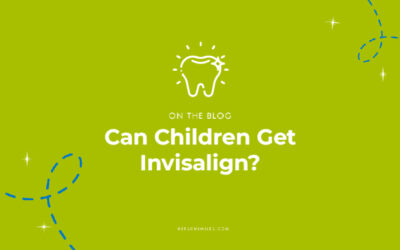The days are flying by, and summer is growing nearer and nearer. While you may be dreaming of days by the pool and playing sports with your children, we at Hersch Pediatric Dentistry want to remind you to take care of your teeth this summer. As your children’s orthodontist and provider of orthodontics, we know that dental issues can occur at any time, including during the summer months.
We’d like to give you a few summer tips to keep your teeth safe so that you won’t have to spend any additional time at the office of your Newport Beach children’s dentist.
Tip #1: Don’t Spend Too Much Time in the Pool
One of the most common hobbies during the summer is going to the pool and swimming. However, did you know that staying in a swimming pool for too long can harm a person’s teeth?
Swimmer’s Calculus: What is it and How Does it Affect Teeth?
It’s true – if a person spends over six hours a week in a swimming pool, a condition known as swimmer’s calculus can appear. This condition can cause hard, yellow, or brown deposits to appear on a person’s teeth, staining them in the process. The reason why this happens is that swimming pools have treatment chemicals in them. When your teeth are in contact with these chemicals for too long, you’ll be vulnerable to swimmer’s calculus. Thankfully, this condition is reversible through cosmetic dentistry procedures, but the safest option is to just limit the amount of time you spend in the pool.
Tip #2: Wear a Mouthguard While You’re Playing Sports
Since the weather is beautiful, you’ll see people outside playing all kinds of sports: football, basketball, baseball, softball, lacrosse, and much more. Unfortunately, though, these sports and many others can present a risk to your dental health. Dentists estimate that about 13 to 39 percent of all dental injuries occur while a person is playing sports. While we wouldn’t ever suggest stopping playing sports, a great way to greatly limit your risk of suffering dental harm is by wearing a mouthguard.
The Importance of Mouthguards for Children
The most common facial injury in sports is a dental injury. However, a survey conducted by the American Dental Association found that 84 percent of children do not wear mouthguards while playing sports because they are not required to wear them. While other protective gears, such as helmets, goggles, shoulder pads, and shin guards are required, many sports overlook the importance of children wearing a mouthguard.
What is a Mouthguard and When Should Children Wear One?
A mouthguard is a thin, flexible piece of plastic that is placed in the mouth over the teeth to protect the oral structure while playing sports. It minimizes the chances of a sport-related injury to the mouth and jaw.
There are some leagues and schools that do require children to wear a mouthguard, primarily for playing hockey and football. As an orthodontist in Newport Beach, we often see chipped and broken teeth from various contact sports, including soccer, baseball, basketball, and lacrosse, as well as other activities like ice skating and skateboarding.
Even if your child’s sports league doesn’t require mouthguards, we encourage parents to have their children wear them to prevent dental injuries.
Even children with baby teeth should wear mouthguards.
Baby teeth play an important role in helping children chew properly for good nutrition, helping with speech development, and saving space for permanent teeth. Trauma to the mouth can damage surrounding bone and develop permanent teeth, leading to alignment and spacing issues.
How to care for a sports mouthguard
To care for a sports mouthguard, it’s best to rinse it with warm water and liquid soap every day and store it in a clean, dry case. If your child loses teeth, goes through a growth spurt, or if the mouthguard becomes worn or damaged, it’s important to replace it promptly to ensure continued protection.
At Hersch Pediatric Dentistry, we want to help your children maintain healthy teeth and a beautiful smile all year round. By taking simple precautions like limiting pool time and wearing mouthguards during sports, you can help protect your child’s dental health this summer and beyond.






